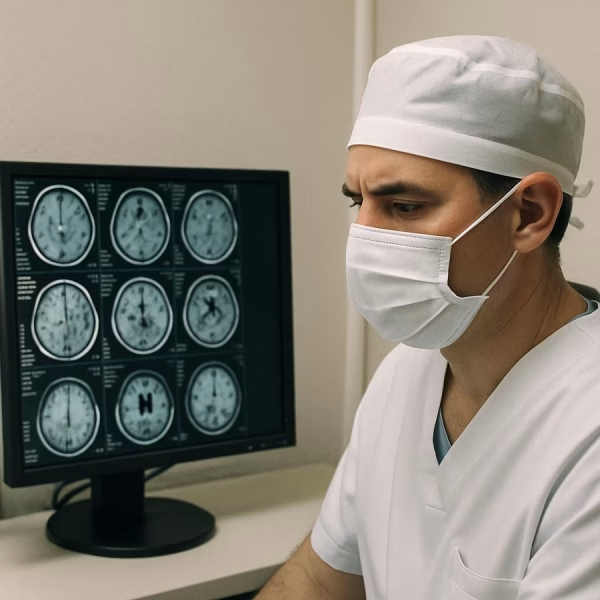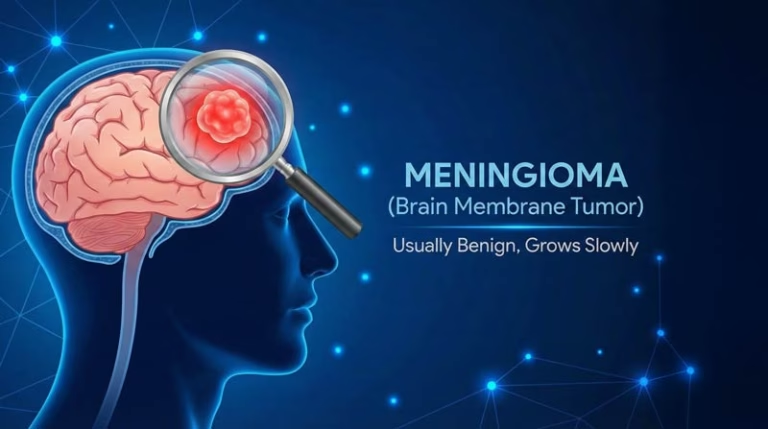
Best Neurosurgeon Traits & Top Specialists Guide
Facing a myelomeningocele diagnosis? Learn about advanced surgical treatments and lifelong care from leading neurosurgeon Prof. Dr. Serdar Baki Albayrak in Turkey.
- On
- InUncategorized

How to Choose the Best Neurosurgeon: A Guide to Top Qualities
Choosing the right neurosurgeon is one of the most critical health decisions you can make. But what truly defines the "best"? This guide explores the essential qualities—from experience and advanced skills to communication and compassion—to help you make a confident and informed choice. Learn what to look for with insights from the practice of Prof. Dr. Serdar Baki Albayrak.
Last reviewed: 02 October 2025 • Evidence‑based content • Patient‑centered language
Understanding the Role of a Neurosurgeon
Neurosurgeons are medical specialists who treat disorders of the brain, spine, and nerves. Their expertise encompasses delicate and complex surgeries. However, their role extends beyond the operating room. They also diagnose neurological disorders and collaborate with other healthcare professionals to ensure comprehensive patient care.
Key Responsibilities:
- Performing intricate surgeries on the brain and spine
- Diagnosing and managing neurological disorders
- Collaborating with a multidisciplinary team
- Overseeing postoperative care to ensure successful patient outcomes
As you consider choosing a neurosurgeon, understanding their multifaceted role is essential. Every decision they make is rooted in extensive expertise and training, preparing them to handle high-pressure situations and make swift, critical judgments.
Essential Qualifications and Training
Neurosurgeons undergo extensive education and rigorous training to handle complex neurological conditions. Initially, this journey begins with completing medical school. Following this, they enter a demanding neurosurgery residency program, which typically lasts seven years. During this period, aspiring neurosurgeons gain hands-on experience in various surgical procedures.
Many choose to pursue further specialization through fellowship training, allowing them to focus on specific areas such as cerebrovascular surgery or spine surgery. This comprehensive training is critical for developing the technical skills and decision-making abilities required during complex operations.
Board Certification and Professional Credentials
Board certification is a vital marker of a neurosurgeon’s expertise. It indicates that the surgeon has met high standards in their field by passing rigorous exams. Furthermore, certified neurosurgeons demonstrate a commitment to maintaining excellence, as this certification often requires periodic renewal through continued education and proof of good practice.
Key Professional Credentials to Look For:
- Board certification from a recognized medical board
- Fellowship status in reputable associations
- Active membership in professional societies
These credentials are not just titles; they are testimonies to a neurosurgeon’s dedication. For patients, choosing a board-certified neurosurgeon provides reassurance that they will receive care from a qualified expert committed to the highest standards.
Experience and Track Record
When evaluating neurosurgeons, experience is crucial. The number of surgeries performed often correlates with success rates. Experienced neurosurgeons are more adept at handling complex cases and anticipating challenges during surgery. Therefore, it is essential to look for a strong track record of successful outcomes, patient recoveries, and minimal complications.
Many neurosurgeons specialize in specific procedures, making their track record in those areas even more important. An experienced neurosurgeon is better equipped to handle unexpected situations, increasing a patient's confidence in achieving the best possible results.
Communication, Empathy, and Patient-Centered Care
Effective communication is fundamental. A top neurosurgeon must explain complex medical information clearly, helping patients and their families understand conditions and treatment plans. Similarly, empathy and compassion are crucial. They should actively listen to patient concerns, build trust, and foster a supportive environment.
This commitment to patient-centered care ensures that treatment plans respect personal values and preferences. A compassionate neurosurgeon is more than a doctor—they are a trusted partner in a patient's health journey, making a profound difference in outcomes and satisfaction.
Mastery of Advanced Techniques and Technology
Neurosurgery is a rapidly evolving field. Top neurosurgeons adapt to innovations swiftly to provide the most effective care. For instance, advanced techniques like minimally invasive surgery can reduce recovery time and risk. Mastery of technology, such as robotic systems and sophisticated imaging, enhances precision and allows for less invasive procedures.
Look for Expertise In:
- Minimally invasive procedures
- Use of robotic systems and surgical navigation
- Advanced imaging technologies
A neurosurgeon's ability to incorporate these advanced methods reflects a deep dedication to providing patients with the benefits of the best available treatments.
Research, Innovation, and Continuous Learning
Research is a cornerstone of progress in neurosurgery. Many leading neurosurgeons contribute to groundbreaking studies and share their findings in medical literature and at conferences. This involvement highlights their dedication to advancing the field. Moreover, continuous learning is vital for keeping up with new discoveries and ensuring their skills remain current.
Collaboration and Multidisciplinary Approach
Exceptional neurosurgeons rarely work in isolation. They are part of a broader medical team, and effective collaboration is essential for comprehensive patient care. A multidisciplinary team can include neurologists, radiologists, oncologists, and rehabilitation specialists. Together, they create a cohesive and holistic treatment plan that addresses all aspects of a patient's condition.
Reputation, Reviews, and Patient Testimonials
A neurosurgeon's reputation is a powerful indicator of their expertise and commitment to patient care. Patient reviews and testimonials provide firsthand accounts and personalized insights into the quality of care. When researching, look for recurring themes of satisfaction and specific examples of outstanding care. A strong reputation built on positive feedback often signifies a trusted and respected medical professional.
Recognized Leaders: Spotlight on Prof. Dr. Serdar Baki Albayrak
Prof. Dr. Serdar Baki Albayrak is an esteemed figure in the field of neurosurgery, embodying the qualities discussed. Known for his pioneering efforts, he has contributed significantly to medical advancements in Turkey and globally. His reputation for handling complex neurosurgical cases with high success rates has earned him recognition among peers and patients alike.
In addition to his surgical prowess, Dr. Albayrak is active in research and education, sharing insights from his extensive experience to advance the field. His practice serves as an example of a commitment to excellence, innovation, and patient-centered care.
Frequently Asked Questions
What does a neurosurgeon do?
How long is a neurosurgeon's training?
What is the difference between a neurologist and a neurosurgeon?
Can a neurosurgeon treat back pain?
What should I consider when choosing a neurosurgeon?
Ready to Make an Informed Choice?
Choosing the right neurosurgeon is crucial for your health and peace of mind. If you are seeking an expert with a proven track record, advanced skills, and a compassionate approach, our team is here to guide you.
Book a ConsultationTo learn more about Prof. Dr. Serdar Baki Albayrak, visit his biography page.




